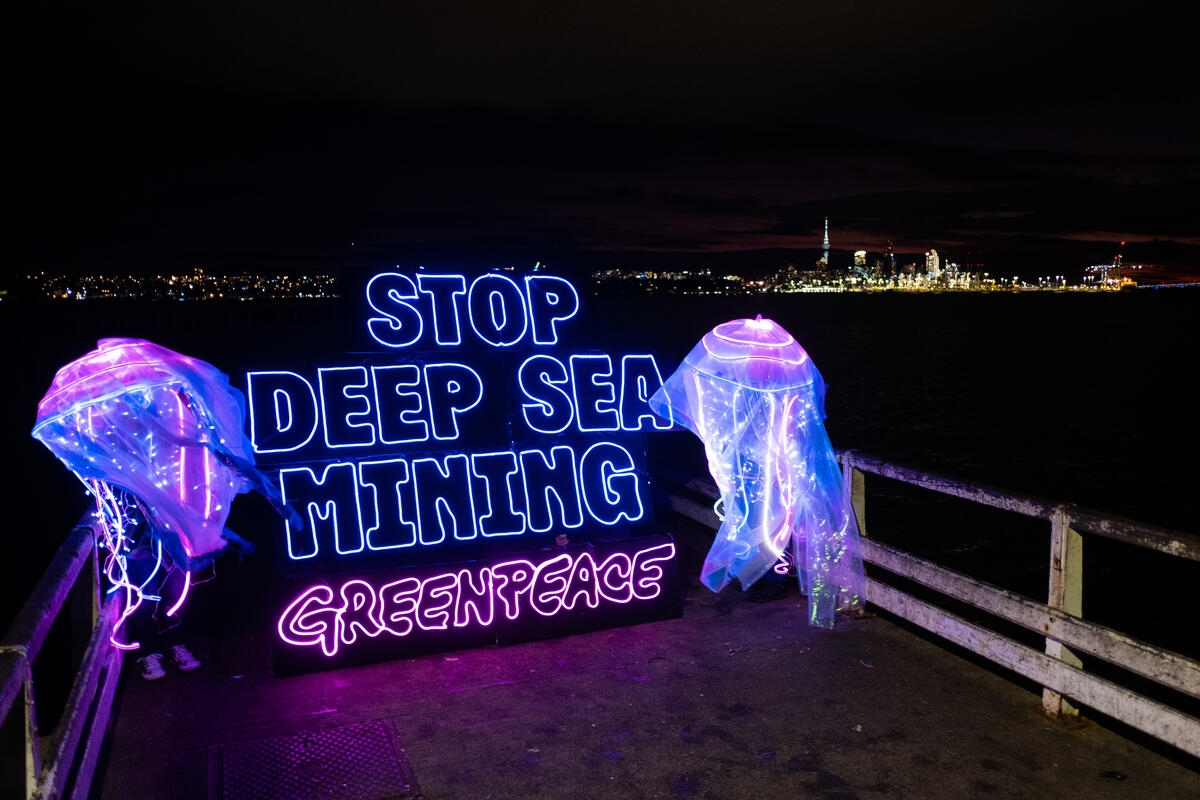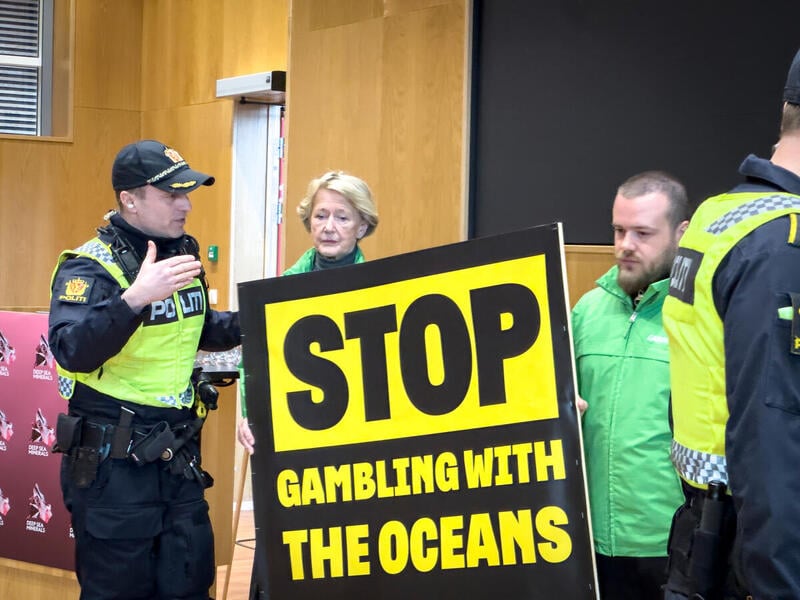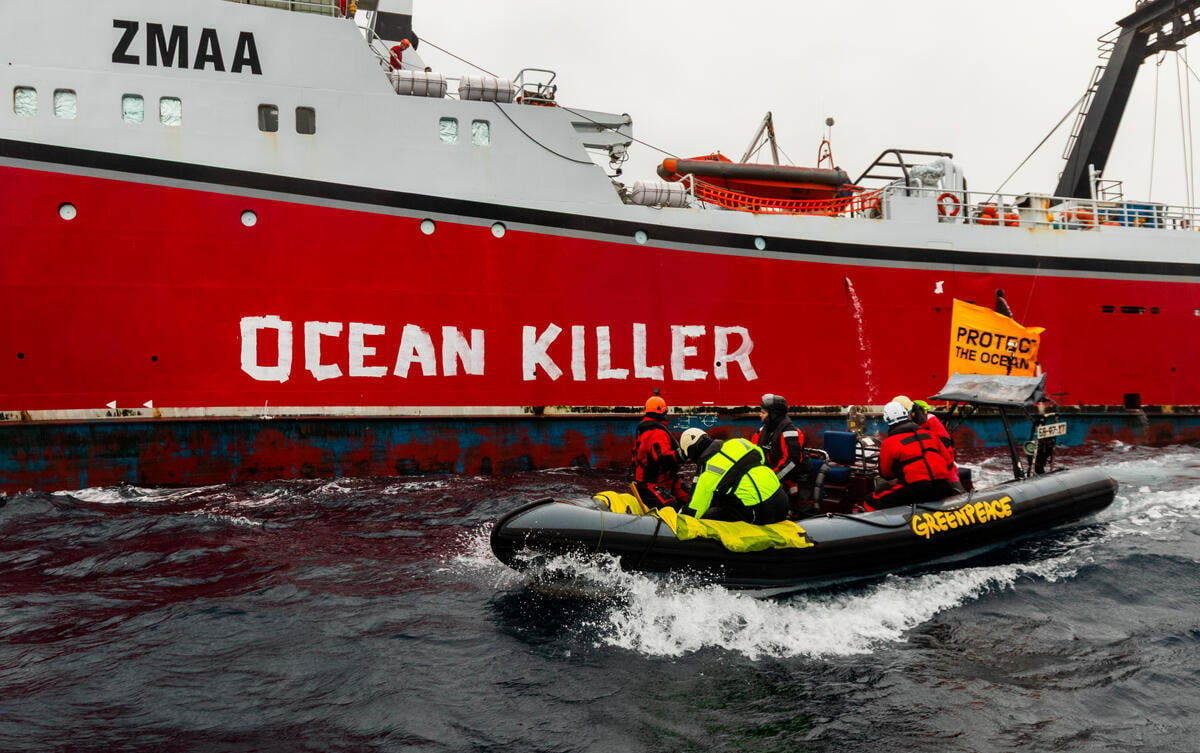Amazon Reef, French Guiana – Six professional deep divers have successfully completed the first ever dives to document the recently revealed Amazon Reef through high resolution images while collecting biological samples in order to better understand the threatened ecosystem off the coast of French Guiana. [1] [2]
The region is under threat from oil drilling and new Greenpeace Brazil analysis shows that burning all oil reserves in the region is equivalent to eight years worth of Amazon rainforest deforestation. [3] Oil companies like BP, and the Brazilian Government are interested in opening this region to oil exploration projects. This is a threat to this ecosystem and to the climate. According to estimates by the Brazilian National Petroleum Agency (ANP), the bottom of the sea near the Amazon Reef in Brazil may contain 14 billion barrels of oil , the equivalent of 5.2 Gt of CO2. [4] [5]
Alexis Rosenfeld, deep diver and photographer, said: “These dives are particularly challenging: the water is loaded with sediments from the Amazon river, currents are very strong and we have no visibility when we start descending. But it’s totally worth it when the halo of my light beams reveals the Amazon Reef. This is a haven of life, a treasure of biodiversity explored for the first time by humans and whose mystery is only just being revealed.”
François Chartier of Greenpeace’s Protect the Oceans campaign, said:
“We’re in a climate emergency: we just can’t afford to drill and burn more oil. As a comparison, even if deforestation in the Amazon forest ended tomorrow, if we burn the estimated reserves of the Amazon Reef region, it would be the same as continuing to deforest the Amazon for another eight years.
“Next week, the UN will release a major report on climate and the oceans. It’s clear that the climate crisis is also an ocean crisis. Healthy oceans are critical in tackling climate change, and drilling for oil here could be ruinous for both our oceans and for our climate.”
It is critical to protect at least 30% of the oceans, from the coastal areas to the high sea to save the climate and stop biodiversity loss. Governments must act with urgency to protect our oceans and agree a strong Global Ocean Treaty in 2020. [6]
Photo and video:
For a free-to-use collection of the scientific expedition to French Guiana see here.
François Chartier is an oceans and oil campaigner for Greenpeace France
Notes:
[1] Images of the 2017 Greenpeace expedition on the Amazon Reef in Brazil: https://media.greenpeace.org/collection/27MZIFJJ1GXZD
Images of the 2018 Greenpeace expedition on the Amazon Reef in French Guiana: https://media.greenpeace.org/collection/27MZIFJXOI985
[2] This scientific mission is part of an international campaign by Greenpeace calling for protecting the oceans, launched last April. During the past two weeks the scientists on board the Esperanza were able to identify incredible megafauna at the surface [Link to IPR]. For a year, the organization’s ships are crisscrossing the oceans from the Arctic to the Antarctic to highlight their beauty and document the threats they face.
[3] Considering an average of 167.7 TC per hectare (INPA, 2014), excluding emissions due to the introduction of other uses, based on 2016 deforestation in the Amazon (Amazon Land Use Change (MUT) emissions in 2016, equivalent to 602 million tons of CO2).
[4] http://rodadas.anp.gov.br/arquivos/Seminarios_r11/tec_ambiental/ingles/Foz_do_Amazonas_Basin.pdf
[5] Considering 0.3714 TCO2 per barrel of oil.
[6] The third of four rounds of negotiations towards a Global Ocean Treaty concluded at the UN in August without serious commitment from most countries. A strong treaty could provide the legal framework for the protection of international waters, making possible the creation of fully-protected Marine Protected Areas, or ‘ocean sanctuaries’, free from harmful human activities. Greenpeace is calling for a network of ocean sanctuaries covering at least a third of the world’s oceans by 2030. The same target was called for by scientists at the International Union for Conservation of Nature (IUCN).
Press contact:
Mélanie Veillaux, Press Officer, Greenpeace France: [email protected], +33 (0)6 42 64 83 76
Greenpeace International Press Desk: [email protected], +31 (0) 20 718 2470 (available 24 hours)



